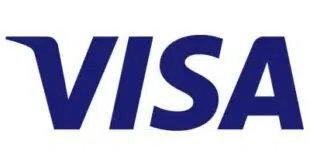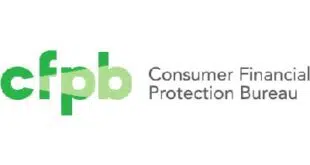It may be as rare as an ivory-billed woodpecker, but the merchant that accepts Visa without also accepting MasterCard or vice versa is not extinct in the United States. Within the past week, discount retailer Dollar General Corp. announced it would accept Visa credit and check (signature-debit) cards but not their MasterCard equivalents, while the University of Minnesota, one of the nation's largest public universities, said it would take MasterCard but not Visa for tuition payments. Merchant acquirers have sold Visa and MasterCard acceptance as one bank-card package for about 30 years. The unusual situations at Dollar General and the University of Minnesota likely do not indicate the start of a retreat from what in the industry is called duality. At Dollar General, Visa acceptance represents an incremental gain by signature-based cards in an under-penetrated merchant category, while the University of Minnesota's acceptance policy involves the contentious issue of convenience fees, which shift the cost of card acceptance from the merchant directly to the consumer. Besides gaining bragging rights over MasterCard Worldwide at fast-growing Dollar General, Visa USA also ended Discover Financial Service's two-year reign as the only credit card accepted at the Goodlettsville, Tenn.-based chain of nearly 8,200 stores selling inexpensive household goods, clothing, and packaged and refrigerated groceries. Dollar General has accepted PIN-based debit cards?the least-costly payment cards for merchants?since 2003 through Cincinnati-based Fifth Third Bancorp's Fifth Third Processing Solutions unit. In a release, Dollar General also said it was one of the first dollar-store retailers to install readers for accepting electronic benefits transfer cards. A Dollar General spokesperson would not say why her company is taking Visa but not MasterCard. A spokesperson for Fifth Third, which is processing Dollar General's Visa transactions in addition to its PIN-debit sales, also had little to say. “Our role in all of this is as an unbiased processor,” the spokesperson says. “Whatever the merchant chooses to accept, we're able to support.” Bill Dobbins, Visa USA vice president of merchant relations, referred questions about exclusivity to Dollar General and would not disclose if Visa offered the retailer any concessions on interchange. But he notes that Visa had a “quiet pilot” going at Dollar General stores in Texas, and is providing marketing support for the chainwide card rollout. “If you go to a Dollar General store today, you will see Visa promotional signage up, right in the window,” he says. He adds that “there were multiple thousands of transactions” on Visa cards on the first day of acceptance. According to Dobbins, Visa has spent considerable time researching the payment needs of Dollar General and its competitors, notably Dollar Tree Stores Inc. and Family Dollar Stores Inc. With sales of $8.58 billion in its 2005 fiscal year, Dollar General is the largest of the so-called small-box value discounters, a retail category Visa estimates at $17.8 billion in annual sales. Dobbins says Visa is accepted at one-third of Dollar Tree's approximately 3,100 locations, while the Visa-owned Interlink PIN-debit brand is accepted at Family Dollar. “The dollar category is a very fertile ground,” he says. “We spent a lot of time with these three players, gathering insight on the industry, and really focusing on the value Visa brings.” Visa has several programs to help retailers boost sales, including one called the Visa Incentive Network that lets retailers target Visa cardholders with offers based on analyses of transactional patterns. At the University of Minnesota, however, MasterCard along with Discover and American Express Co. cards are in for tuition payments, but Visa is not. According to the Minneapolis Star Tribune, cardholders will be assessed a 2.75% convenience fee. Such fees are not unusual with public-sector merchants because of laws requiring agencies to collect 100% of a fee or fine. Nonetheless, convenience fees sometimes have been sticky issues in penetrating the public sector, a big target of payment-card network development efforts since the early 1990s. Visa and MasterCard have rules against surcharging cardholders, but they will permit convenience fees when they don't discriminate, such as an online service in which all payers must use a card. A University of Minnesota spokesperson did not respond to repeated inquiries from Digital Transactions News. And although news reports referred to a flat fee, Dobbins says the university wanted to have a percentage-based fee. “Visa does have rules that allow for the assessment of a certain convenience fee,” he says. “A true convenience fee has to be a flat fee. The percentage aspect of what they're doing takes it out of the [realm of a] convenience fee.” Dobbins says an acceptable convenience fee includes other factors too, but he refused to disclose them.
Check Also
With New Sheriffs in Town, Payment Players Can Expect Stiffer Scrutiny, a Lobbyist Warns
Payments companies have sensed increasing regulatory pressure since the Biden Administration’s inauguration last year, and …





